
Discover Oncology
Scope & Guideline
Transforming clinical practices with cutting-edge findings.
Introduction
Aims and Scopes
- Molecular Mechanisms and Pathways:
Research focusing on the molecular and cellular mechanisms underlying cancer development and progression, including studies on signaling pathways, gene expression, and tumor microenvironment interactions. - Biomarker Discovery and Validation:
Studies aimed at identifying and validating biomarkers for cancer diagnosis, prognosis, and treatment response, utilizing techniques such as genomics, proteomics, and bioinformatics. - Therapeutic Strategies:
Investigations into novel therapeutic approaches, including pharmacological treatments, immunotherapy, and combination therapies, as well as the mechanisms of resistance to existing therapies. - Clinical Trials and Translational Research:
Research that bridges laboratory findings with clinical applications, focusing on the design, execution, and outcomes of clinical trials in oncology. - Patient-Centered Outcomes:
Studies assessing the impact of cancer treatments on patient quality of life, survivorship, and psychosocial factors, emphasizing the importance of holistic care in oncology. - Emerging Technologies in Cancer Research:
Exploration of advanced technologies such as artificial intelligence, machine learning, and novel imaging techniques in the context of cancer diagnosis, treatment, and research.
Trending and Emerging
- Immunotherapy and Immune Microenvironment:
There is a growing emphasis on immunotherapy, including the exploration of immune checkpoint inhibitors and their efficacy across various cancer types, as well as the role of the immune microenvironment in tumor progression. - Genomic and Proteomic Profiling:
Increasing focus on genomic and proteomic analyses to identify novel biomarkers and therapeutic targets, utilizing high-throughput sequencing and bioinformatics to drive precision oncology. - Liquid Biopsies and Circulating Tumor Cells:
Research on liquid biopsies and circulating tumor cells is gaining traction, providing non-invasive methods for early cancer detection, monitoring treatment response, and understanding metastasis. - Machine Learning and AI in Cancer Research:
The integration of machine learning and artificial intelligence in cancer research is emerging, particularly for predictive modeling, diagnostic accuracy, and personalized treatment strategies. - Microbiome and Cancer Interactions:
An increasing number of studies are exploring the relationship between gut microbiota and cancer, investigating how microbial communities influence tumor development and response to therapies. - Metabolic Reprogramming in Cancer:
Research is increasingly focusing on the metabolic pathways in cancer cells, examining how metabolic alterations contribute to tumor growth and therapy resistance.
Declining or Waning
- Traditional Chemotherapy Approaches:
There is a noticeable decrease in papers focused solely on traditional chemotherapeutic agents without the incorporation of novel strategies or combination therapies, reflecting a shift towards more targeted and personalized treatment modalities. - Basic Science without Clinical Relevance:
Research that is strictly basic science with minimal implications for clinical practice is becoming less common, as the journal increasingly prioritizes studies that have clear translational potential. - Single-Cancer Focus Studies:
The trend is moving away from studies that focus exclusively on a single type of cancer, with more publications emphasizing pan-cancer analyses or comparative studies across multiple cancer types.
Similar Journals

Translational Oncology
Innovating Tomorrow's Cancer Therapies TodayTranslational Oncology is a premier open access journal published by Elsevier Science Inc, dedicated to the rapidly evolving field of cancer research and oncology. Since its inception in 2008, the journal has been a vital platform for the dissemination of innovative research and findings that bridge the gap between laboratory discoveries and clinical applications. With an impressive impact factor and ranked Q2 in Cancer Research and Q1 in Oncology, it occupies a prominent position in the academic landscape, helping to shape the future of cancer therapeutics and patient care. The journal offers valuable insights across a diverse array of topics, including molecular biology, genetic factors in cancer, and innovative treatment strategies, ensuring relevance and engagement for its readership. As it converges toward 2024, Translational Oncology continues to attract a global audience of researchers, healthcare professionals, and students committed to advancing our understanding of cancer and enhancing clinical outcomes.
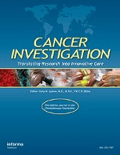
CANCER INVESTIGATION
Pioneering insights in oncology for a healthier tomorrow.CANCER INVESTIGATION is a distinguished peer-reviewed journal published by Taylor & Francis Inc, dedicated to the advancing field of cancer research and oncology. With an ISSN of 0735-7907 and E-ISSN of 1532-4192, this journal has been a pivotal resource for professionals and researchers since its inception in 1983, continually contributing to the evolving landscape of cancer investigation until its convergence in 2024. CANCER INVESTIGATION boasts noteworthy rankings in 2023, including Q3 in Cancer Research and Q2 in Medicine (miscellaneous), highlighting its relevance and impact in these critical areas. The journal's commitment to disseminating innovative research and comprehensive reviews makes it an essential platform for those engaged in cancer studies and related disciplines. While currently not available as an open-access publication, CANCER INVESTIGATION remains an invaluable tool for understanding the complexities of cancer, offering insights that drive scientific advancements and improve patient outcomes.
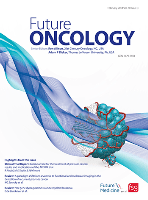
Future Oncology
Advancing cancer research for a healthier tomorrow.Future Oncology is a premier peer-reviewed journal published by FUTURE MEDICINE LTD, dedicated to advancing research and innovation within the field of oncology. Established in 2005 and set to continue through 2024, this journal serves as an essential resource for researchers, healthcare professionals, and students engaged in cancer studies. With its emphasis on groundbreaking findings and multidisciplinary approaches, Future Oncology holds an esteemed reputation, reflected in its 2023 category quartiles ranking it in Q2 for Cancer Research and Q1 for Medicine (miscellaneous). The journal is indexed in Scopus, showcasing its rigorous content, with rankings in the 63rd percentile for Oncology and the 46th percentile for Cancer Research. Although it does not operate on an open-access model, its commitment to disseminating cutting-edge findings makes it an invaluable asset for those seeking to stay at the forefront of oncology research.Future Oncology strives to bridge the gap between laboratory and clinical research, fostering collaboration and appreciation for the complexities of cancer treatment.
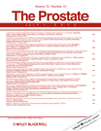
PROSTATE
Transforming prostate research into clinical excellence.PROSTATE is a premier, peer-reviewed journal published by Wiley, focusing on the critical fields of urology and oncology. With an established history since 1980 and a projected convergence through 2024, this influential journal serves as a vital resource for researchers, clinicians, and students alike. It holds a prestigious position in the academic landscape, classified in the Q1 category for Urology and Q2 in Oncology as of 2023, demonstrating its significant contribution to these disciplines. With a Scopus rank of #23 in Urology and #169 in Oncology, PROSTATE is pivotal for advancing knowledge and fostering innovation in prostate research, treatment, and overall male health. The journal aims to publish high-quality original articles, reviews, and clinical studies that address the complexities of prostate-related conditions, ultimately seeking to improve patient outcomes and propagate best practices in the medical community.
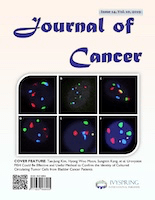
Journal of Cancer
Innovative insights for a cancer-free future.Journal of Cancer is a premier, peer-reviewed academic journal published by IVYSPRING INTERNATIONAL PUBLISHING that focuses on advancing the field of oncology. With an impact factor reflecting its significant contributions, this journal ranks in the 80th percentile of medical journals pertaining to oncology, positioning it at #79 out of 404 in Scopus. Since its inception in 2010, the journal has embraced an Open Access model, ensuring that groundbreaking research reaches a global audience without barriers. Based in Australia, the journal addresses a wide array of topics within cancer research, catering to researchers, healthcare professionals, and students committed to enhancing their understanding of the complexities of cancer. Amidst evolving challenges in oncology, the Journal of Cancer serves as a vital platform for disseminating innovative findings, fostering collaboration, and promoting informed decisions that can lead to improved cancer outcomes worldwide.
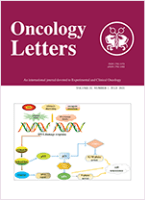
Oncology Letters
Exploring New Frontiers in Cancer Treatment and CareOncology Letters is a prominent academic journal dedicated to disseminating high-quality research in the fields of oncology and cancer research. Published by SPANDIDOS PUBL LTD and based in Greece, this journal has established a significant presence since its inception in 2010 and continues to contribute to the scientific community with a focus on both clinical and experimental oncology. Notably, it holds a respectable Q3 ranking in the categories of Cancer Research and Oncology as of 2023, highlighting its relevance and contribution to these critical fields. With a Scopus rank of #139/404 in Medicine – Oncology and #117/230 in Biochemistry, Genetics, and Molecular Biology – Cancer Research, Oncology Letters serves as a valuable platform for researchers, professionals, and students alike to explore emerging findings and innovative treatment approaches. Though it operates within a traditional subscription model, this journal prides itself on fostering accessible and impactful discourse in oncology, making it an essential resource for those committed to advancing cancer research and improving patient care.

Nature Cancer
Empowering Breakthroughs in OncologyNature Cancer, published by NATURE PORTFOLIO, stands at the forefront of oncological research with a robust impact within the scientific community. As an esteemed journal with impressive rankings—#12 in Medicine (Oncology) and #8 in Biochemistry, Genetics and Molecular Biology (Cancer Research) according to Scopus, placing it within the 97th and 96th percentiles respectively—Nature Cancer boasts a Q1 category status in both Cancer Research and Oncology for 2023. The journal's commitment to advancing cancer research is crucial, promoting high-quality, peer-reviewed studies that address the complexities of cancer biology and treatment. By facilitating open access to impactful findings, Nature Cancer aims to foster collaboration and inspire innovative approaches among researchers, professionals, and students alike, making significant strides in the global fight against cancer. As this pivotal publication continues its converged years from 2020 to 2024, it heralds a future ripe with transformative insights and breakthroughs in the vital field of oncology.

Cancers
Advancing cancer research for a healthier tomorrow.Cancers is a leading peer-reviewed journal published by MDPI, dedicated to advancing the field of oncology and cancer research. Established in 2009 and based in Switzerland, this Open Access journal provides a platform for the rapid dissemination of high-quality research findings, reviews, and clinical studies related to all aspects of cancer biology and treatment. With an impressive impact factor and recognized as Q1 in Oncology and Q2 in Cancer Research for 2023, Cancers strives to foster a collaborative environment among researchers, healthcare professionals, and students seeking to deepen their knowledge and understanding of cancer. The journal’s commitment to accessibility and its broad scope make it an invaluable resource for anyone passionate about combating cancer and improving patient outcomes. For more information and to access its diverse publications, visit the journal’s website.

CANCER
Exploring the depths of cancer science for better outcomes.CANCER, published by Wiley, stands as a pivotal journal in the field of oncology and cancer research, boasting an impressive impact factor and consistently dynamic growth since its inception in 1948. With an ISSN of 0008-543X and an E-ISSN of 1097-0142, this esteemed journal is recognized for its rigorous peer-reviewed articles, making significant contributions to the understanding of cancer biology, treatment modalities, and clinical practices. CANCER holds a distinguished position in the academic community, securing its placement in the Q1 category for both cancer research and oncology, and ranks within the top percentiles on Scopus, indicating its high impact and relevance. The journal is particularly beneficial for researchers, professionals, and students seeking to stay abreast of the latest advancements in cancer science. By addressing essential research questions and providing pathways for new therapies, CANCER continues to play a crucial role in shaping the future of oncology and improving patient outcomes.
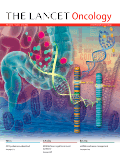
LANCET ONCOLOGY
Empowering the oncology community with cutting-edge knowledge.The Lancet Oncology is a premier peer-reviewed journal published by Elsevier Science Inc., recognized as a leading authority in the field of oncology. With an ISSN of 1470-2045 and E-ISSN 1474-5488, this esteemed journal boasts an impressive 2023 impact factor placing it in the Q1 category of oncology—reflecting its role as a critical resource for cutting-edge research. The journal publishes high-quality articles covering novel scientific discoveries, clinical advancements, and public health issues related to cancer treatment and prevention. It is ranked #5 out of 404 in the Scopus Medicine _ Oncology category, demonstrating its influence and relevance in the field, with an outstanding rank in the 98th percentile. Operating from its base in the United Kingdom, The Lancet Oncology spans a comprehensive timeframe from 2000 to 2024, making it a vital repository of oncology literature. Although it does not primarily operate on an open-access model, its significant subscription base ensures that a wealth of knowledge is accessible to researchers, professionals, and students alike, fostering a profound understanding and advancement in oncology.